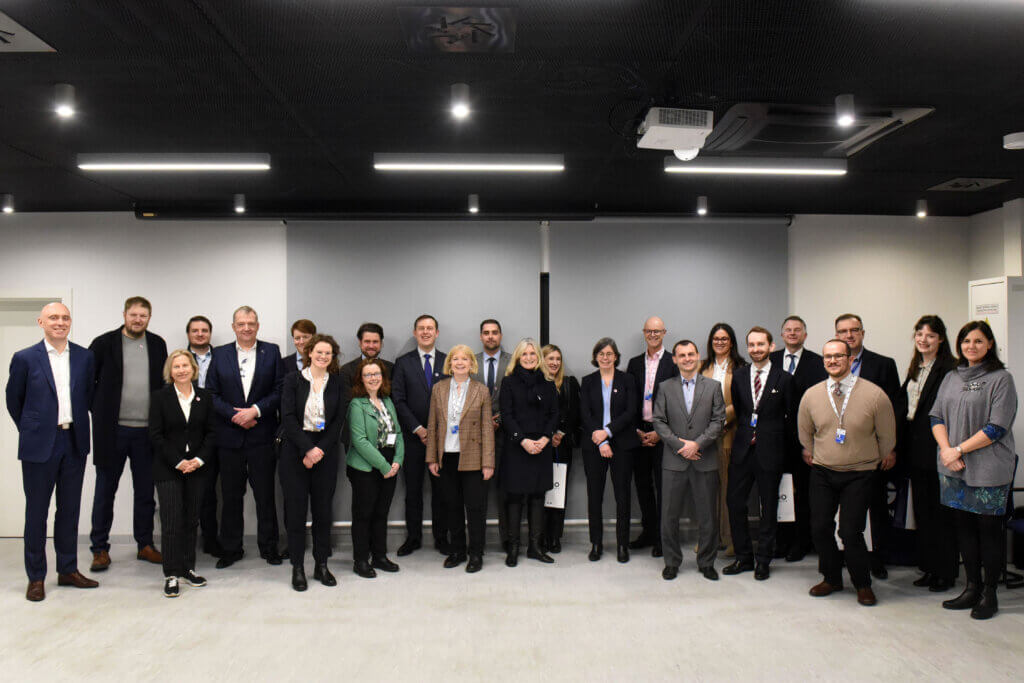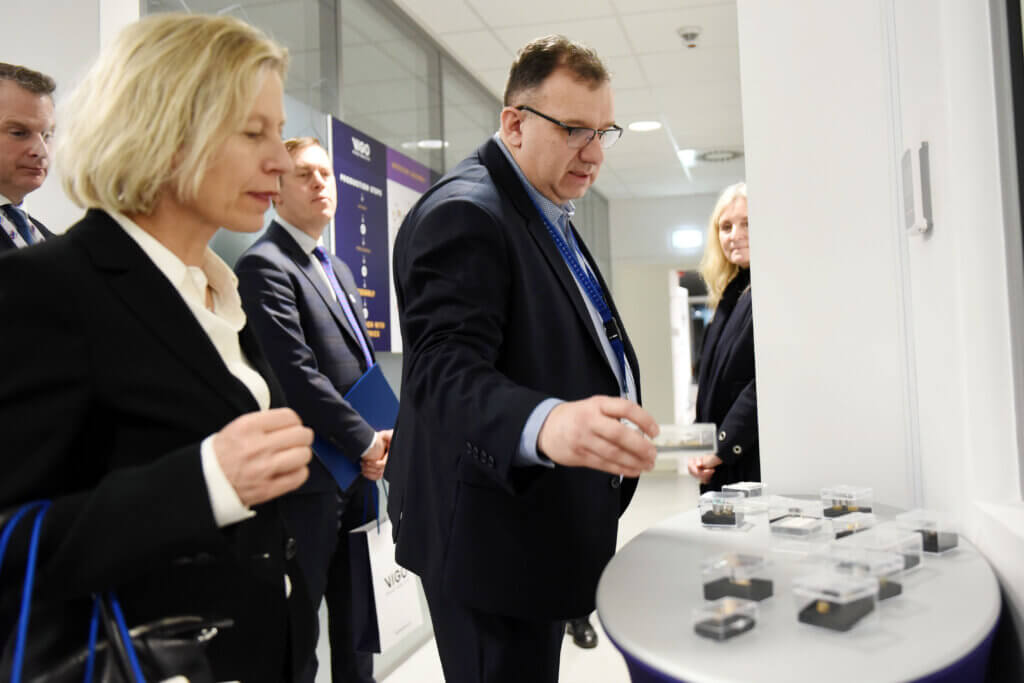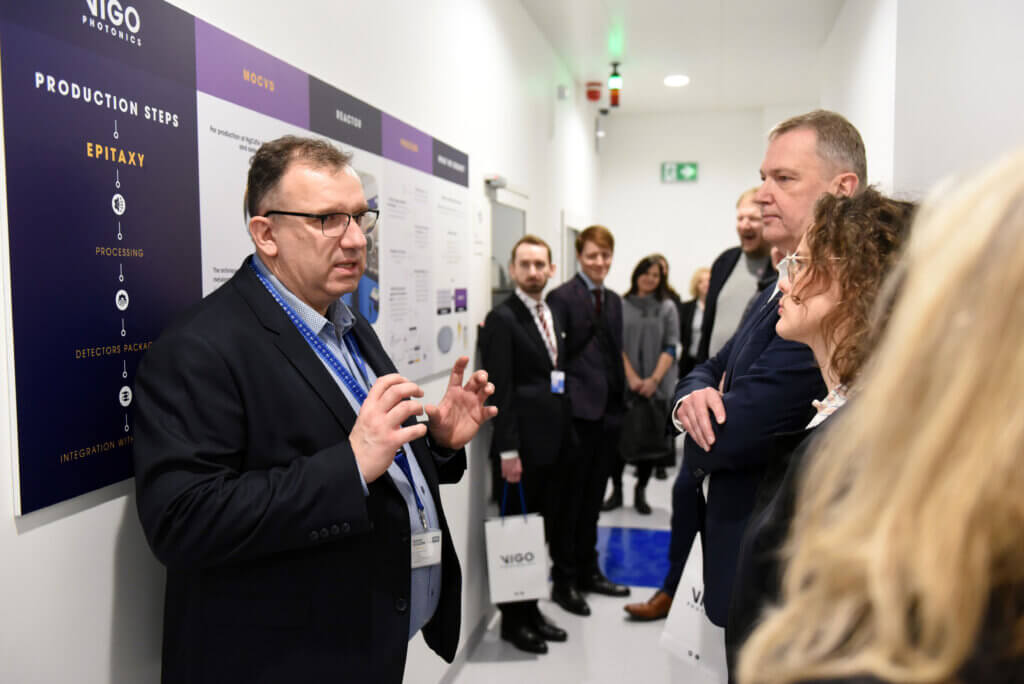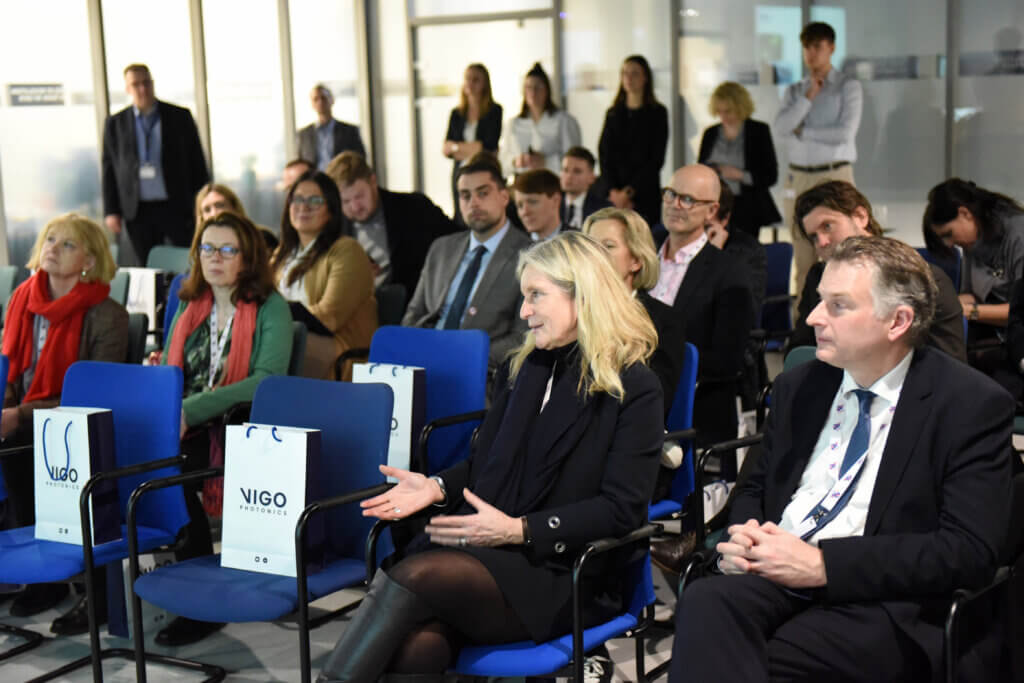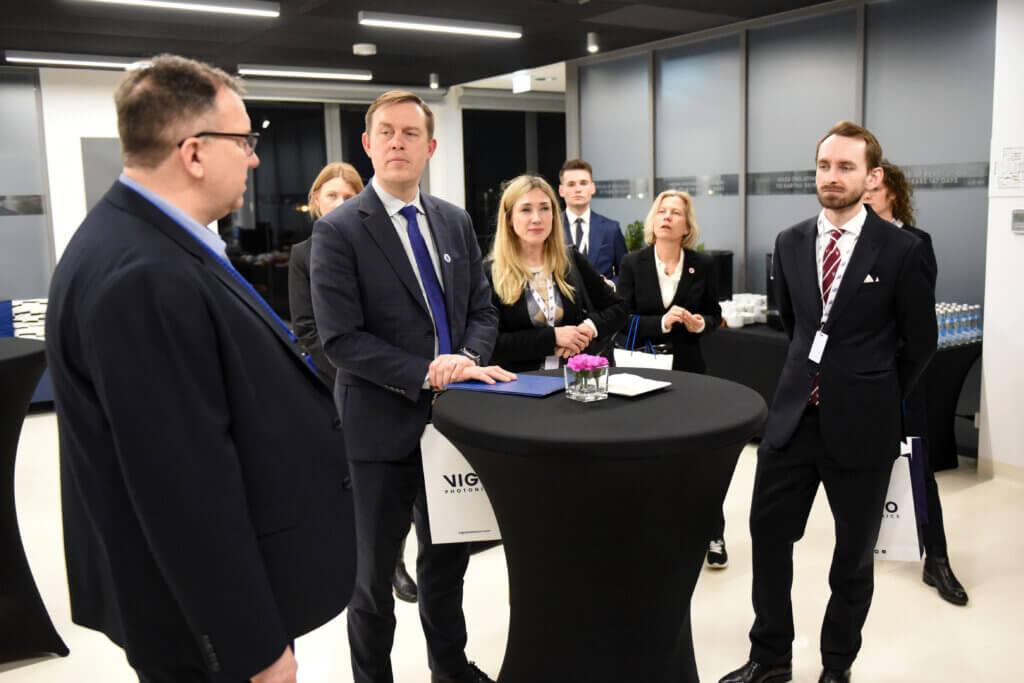Study visit of EU deputy ministers to VIGO Photonics - talks on the future of European technologies

On February 3, 2025, ministers of EU member states took part in a study visit to the headquarters of VIGO Photonics in Ozarow Mazowiecki. The meeting took place a day before the joint informal meeting of ministers of competitiveness and trade during the Polish EU presidency. The visit was chaired by Michal Baranowski, Deputy Minister of Development and Technology.
During the first part of the meeting, Lukasz Piekarski, a member of the Board of Directors of VIGO Photonics, presented the company's achievements and the key application areas of its products, which are used in industry, transportation, environmental protection, medicine and security, among others. He paid special attention to the “HyperPIC” project, subsidized with more than 430 Mio. as part of the IPCEI Microelectronics and Communication Technologies (Important Projects of Common European Interest) project, which aims to strengthen the potential of the European microelectronics industry in the context of global competition. The implementation of HyperPIC technology will allow the replacement of expensive and complex systems with photonic integrated circuits. Consequently, it will be possible to use single chips in everyday devices such as smartphones, home appliances and cars. Work on the project will culminate in the establishment of Europe's first photonic chip factory.
In the second part of the visit, the ministers toured the VIGO Photonics production facility, learning about the production process of infrared detectors. The participants were able to see the entire production facilities, from research laboratories to the assembly hall, which allowed them to better understand the potential of European innovation in photonics.
The visit was an important part of the dialogue on strengthening the competitiveness of the European semiconductor sector and Europe's technological self-sufficiency. Key challenges such as access to financing, development of research infrastructure, knowledge transfer or problems in the supply chain of key raw materials were discussed.
